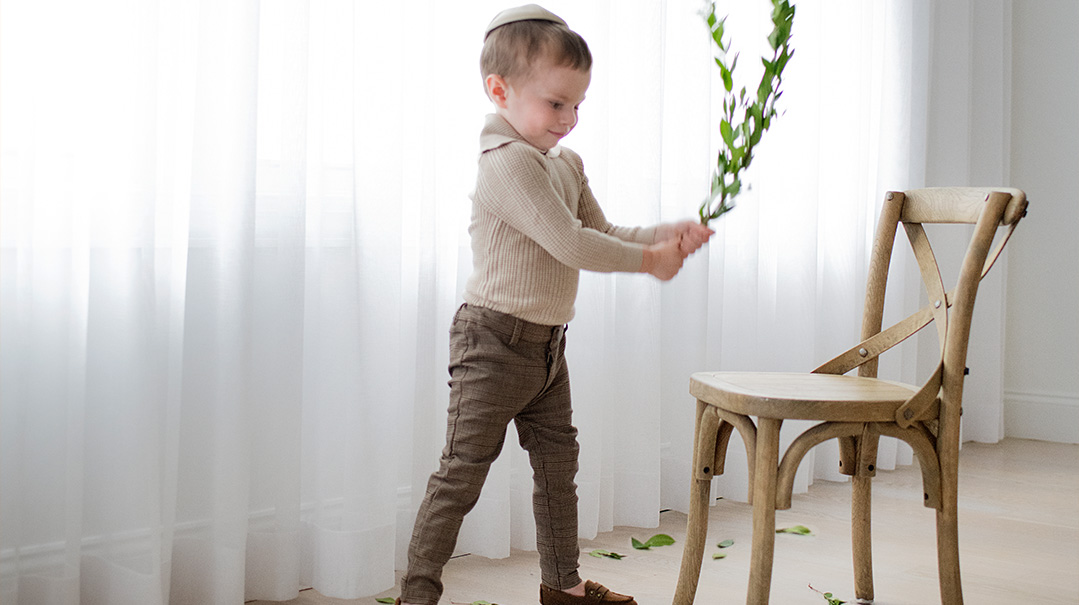From the Depths
| October 6, 2022We cry out and He responds

Fifteen years ago, we were in serious financial straits.
Serious as in when a relative came to visit and opened our pantry, she was shocked. “There’s nothing in here!”
And aside from the two cans of beans on the top shelf and one bag of elbows on the bottom, there wasn’t.
My husband, Moshe, learned in kollel when we first got married. Long-term learning wasn’t part of our chassidish community’s customs, and we always knew Moshe would go into business once the family started growing. After four years of marriage and two children (and another on the way), he did.
Moshe had a real business kop, and after eight years of hard work, he’d built up his shmatteh business (aka low-end children’s clothing) until he was doing very well. Unfortunately, a few years later, the world experienced an economic downturn, and that, coupled with increasing imports from China and India, caused his business to nosedive. Soon, there was no business left, and our savings were long gone.
So began our descent into poverty, which in turn led to chaos and dysfunction in our home. One child after another began experiencing difficulties and challenges, all leading back to the tension we were living with. Moshe himself was struggling mightily. Actually, he broke down, completely detaching himself from our day-to-day survival needs. It was I who had to find the means to support our family, including begging and borrowing from family members and our community.
I remember the day I took the kids to the lake after school. As soon as we arrived, five-year-old Ezzie ran to the water’s edge, picked up a few pebbles, and threw them at the passing geese. He got excited every time he struck one. I was horrified and immediately took the rocks away.
If I had been trying to delude myself that the children were not seriously affected by the situation at home, this incident was stark evidence of the opposite. My children, all of them, were suffering and in need of heavy-duty emotional support.
That same day, three tuition contracts arrived in the mail, each with a big, bright-red Past Due stamp and a warning that if we didn’t pay up, our children would not be welcome in school the following year.
That was my life. I saw no end in sight: Moshe still had no job prospects, and — this was worst of all — anyone I turned to for advice or help, merely shook their head sorrowfully and said, “Sorry, I can’t help you.”
Still, that particular day stands out in my mind because of what happened later that afternoon. As I stood beside my dresser in the privacy of my bedroom and opened my siddur to daven Minchah, I started crying.
As soon as the tears came, I felt a Presence beside me, around me, and in me. I experienced a peace and joy within that I cannot fully describe; it filled my entire being. It’s difficult to imagine how anyone could feel joy in that place of deepest darkness and despair, but I did.
Years before, a teacher had once talked about the meaning of true joy: “It’s when you feel perfectly aligned with who you are and what your mission is at that very moment.”
That was my joy. It was the deep satisfaction that emanated from knowing that I was exactly where I was supposed to be and doing exactly what I was supposed to be doing.
It was a desperate situation. But the desperateness was beyond my control. What was within my control was my response to the challenge, and I knew without a doubt that I was doing what Hashem wanted from me. I was taking care of my family, helping my children navigate their challenges, and giving my husband the time and space he needed.
Our situation didn’t change overnight. It was years before Moshe found a job, and it took a lot of time and work to help my children through their various challenges. Eventually, the tension in our home dissipated into the normal stress found in every Jewish home.
But that deep feeling of connectedness and peace carried me through the trials of poverty and enabled me to do all the things I had to do to take care of my family until Hashem miraculously took us out of our dire situation.
(Originally featured in Family First, Issue 813)
Oops! We could not locate your form.







